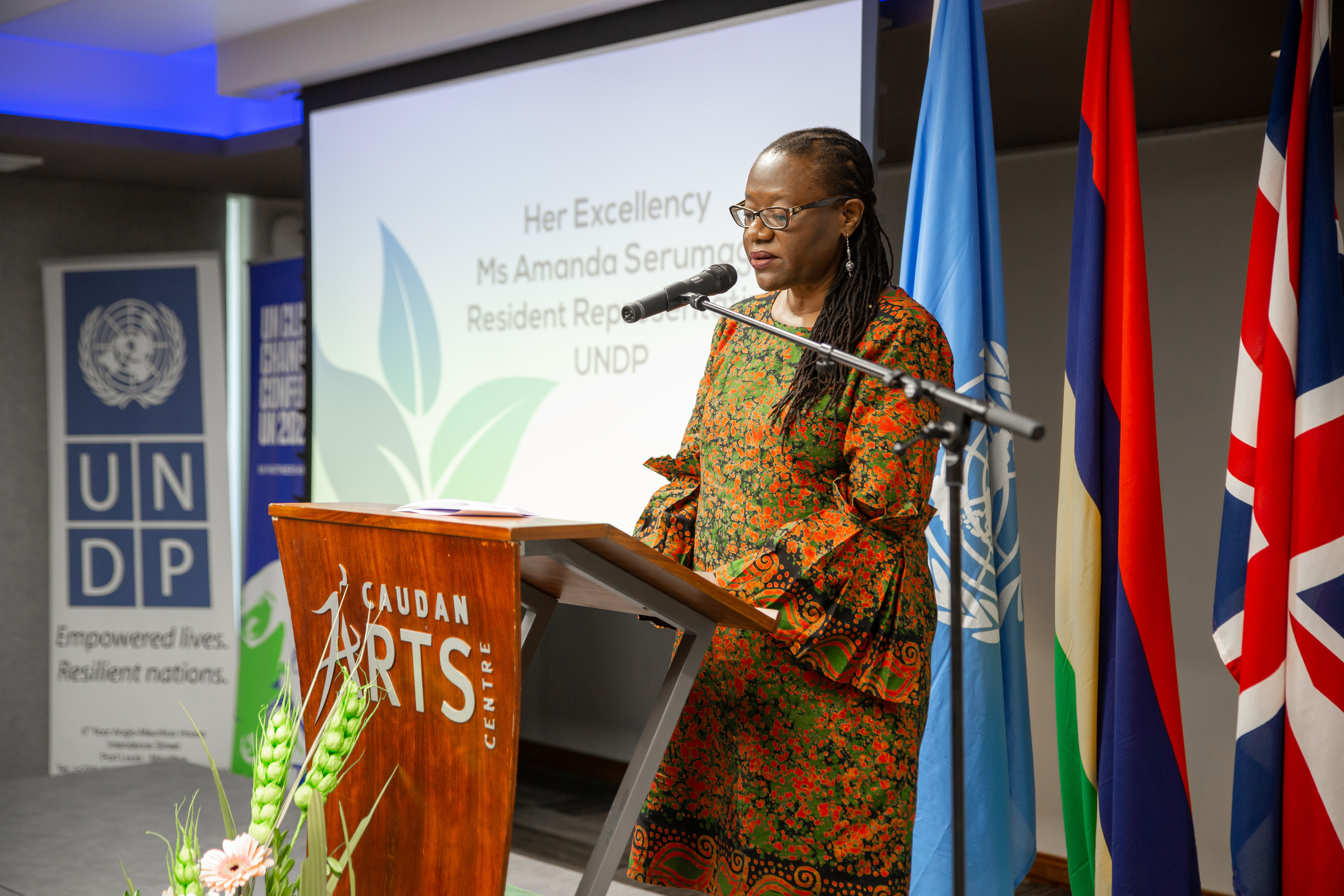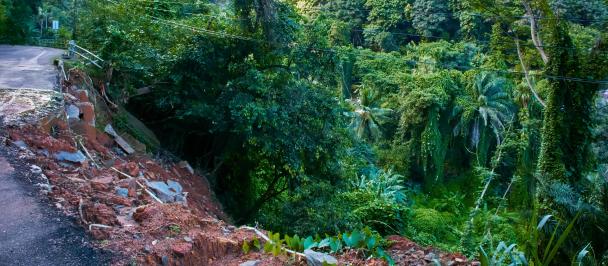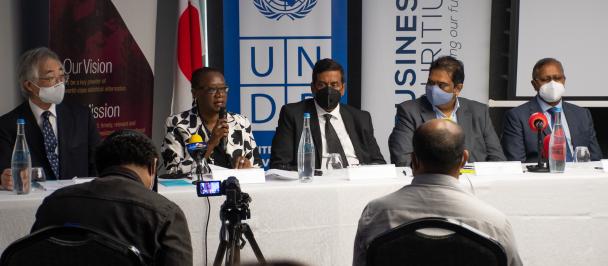Her Excellency Ms. Amanda Serumaga, UNDP Resident Representative for UNDP Mauritius and Seychelles addressing the audience during the MARENA Scholarship Scheme award ceremony. Photo: @UNDPMauritius
27 September 2021
Hon. Honourable Georges Pierre Lesjongard, Minister of Energy and Public Utilities
Your Excellency, Ms Charlotte Pierre, British High Commissioner
Ms Guness- Goolbar, Permanent Secretary, Ministry of Energy and Public Utilities
Mr Beemadoo, Chairman of the Mauritius Renewable Energy Authority (MARENA)
Ms Mungra, CEO of MARENA Board of Directors of MARENA
Distinguished Guests,
Ladies and gentlemen,
Good morning.
I am pleased to join the award ceremony for the MARENA scholarship scheme for training of Renewable Energy Professionals to 8 beneficiaries present today. This initiative is supported jointly by the UNDP and the British High Commission.
Let me begin by thanking the Mauritius Renewable Energy Agency and the Ministry of Energy and Public Utilities for launching this scholarship scheme which contributes local capacity development to boost the green energy industry sector which has been announced as a new economic growth pillar of the recent budget.
The Government of Mauritius is to be highly commended for their unwavering commitment to develop the necessary environment to promote the deployment and use of renewable energy at a national level to achieve 60% of the country’s energy by 2030.
Local capacity is critical to ensure sustainable renewable energy targets. These targets and the forthcoming submission of the updated Nationally Determined Contributions (NDCs) for Mauritius further demonstrate that despite contributing minimally to greenhouse gas emissions, small island states like Mauritius can be vibrant advocates for inclusive climate mitigation action.
Ladies and gentlemen,
The UNDP Country Office has been a committed partner to the government of Mauritius in the shift towards decarbonisation of the economy. Beginning in 2009 UNDP supported the development of the grid code for small scale distributed generation which was an overwhelming success and contributed to laying the foundation for electricity generation from renewable energy at a national scale.
UNDP then assisted the government to secure USD 2m grant from the Global Environment Facility through the Removal of Barriers to Solar Photovoltaic Power Generation project in 2011, which aimed at further capacitating the government to shift towards renewable energy solutions for the electricity sector.
Building from GEF funded project, UNDP secured a USD 28m grant from the Green Climate Fund in 2016 to further assist the Government of Mauritius in overcoming identified barriers to low- carbon investment including institutional strengthening for renewable energy and improving grid absorption capacity, notably using battery energy storage systems.
Today’s activity is organised with under Component 1 of the GCF project whereby MARENA has been capacitated and empowered to provide technical oversight and policy planning support for the development renewable energy sector. Supporting MARENA to raise awareness on renewable energy at grassroot level has also been a key activity under the GCF support
More than 1,500 women at community level benefited from tailored awareness sessions in collaboration with the Central Electricity Board and the National Women Council and 160 women entrepreneurs were the beneficiaries of an 18 hours training course in the basics of entrepreneurships and solar energy dispensed Mauritius Institute of Training and Development.
Ladies and gentlemen,
The contribution of the British High Commission through the MARENA to support unemployed engineering graduates, technicians and engineers to further develop their theoretical knowledge and practical experience on photovoltaic systems is timely and will help meet the increasing need of skilled labour required to accompany the deployment of low carbon technologies.
Building on the capacity building activities undertaken under the GCF project and in complementarity with the scholarship scheme supported by the British High Commission, the UNDP Country Office, with the support of the Australian Government has formulated the Renewable Energy Skills and Education Training (RESET) Project. This training programme, designed for female school leavers, women who may have lost their jobs due to the the pandemic or women entrepreneurs looking at renewable energy solution for their business will help address capacity gaps from a gender perspective.
Ladies and gentlemen,
Meeting the national and global clean energy targets and addressing the challenges associated with climate change will not be possible without and integrated and inclusive approach focussed also on engaging society at all levels and making everyone feel they are concerned with the shift to renewable energy.
Today’s event affirms that the right approach is being used to address gaps to meet the long-term market demands. I take this opportunity to congratulate the awardees for their successful application and I again commend the Ministry of Energy and Public Utilities, MARENA and the British High Commission for championing this initiative
Thank you for your kind attention.

 Locations
Locations



